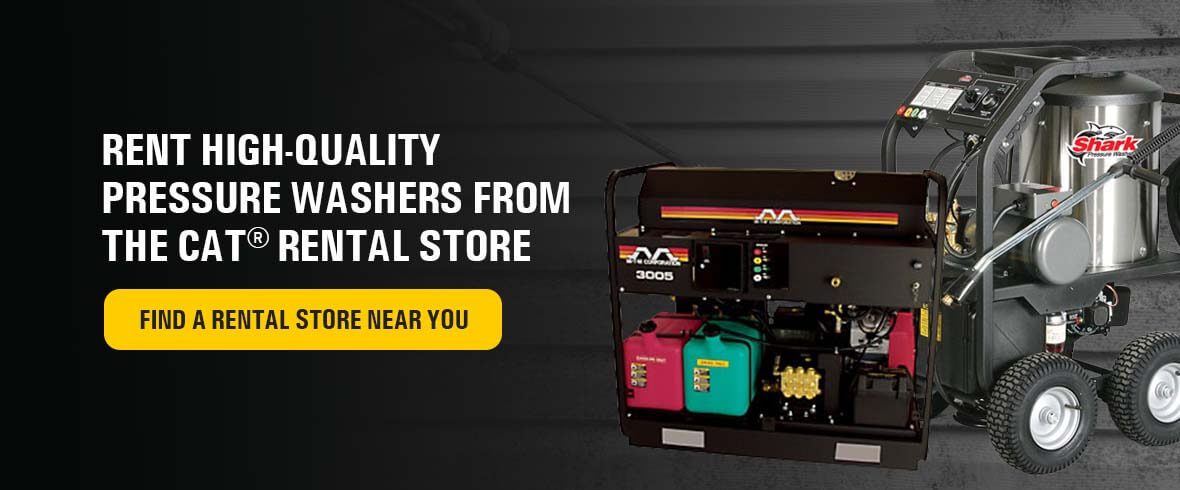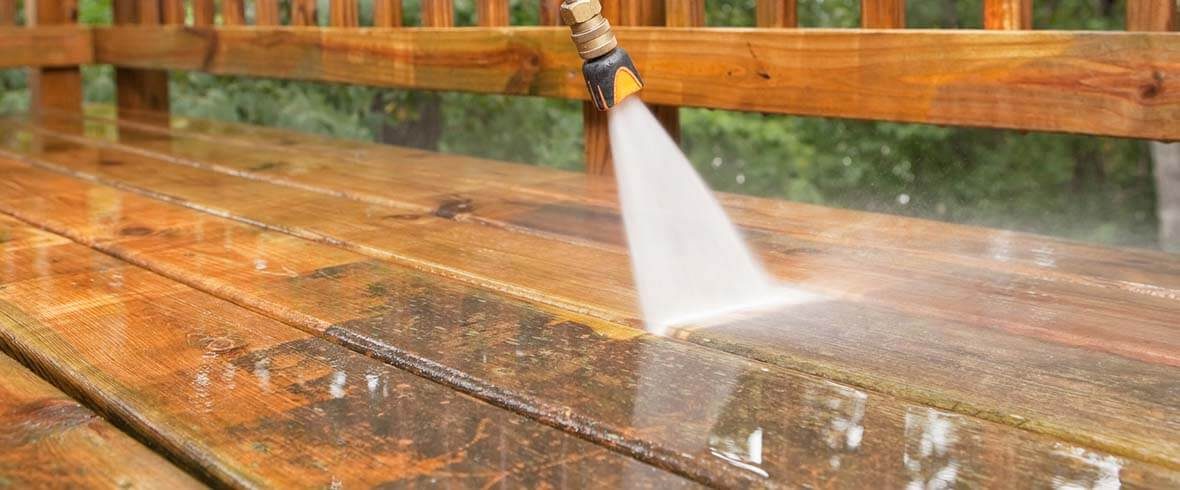
Pressure Washer Rental vs. Hiring a Pro
Exterior surfaces collect dirt, grime, and buildup from weather and daily use. Pressure washing blasts away this debris, restoring surfaces and giving them a fresh look. The main decision for property owners and contractors is whether to rent a pressure washer and handle the work yourself or hire a professional service. This guide compares both options to help you choose what works best for your project and budget.
Pressure Washer Rental vs. Professional Service
The biggest difference between the two options is who does the work. With professional service, you schedule a team that brings equipment and handles the cleaning. With DIY, you choose the right pressure washer rental, complete the job on your schedule, and return the machine when you’re done.
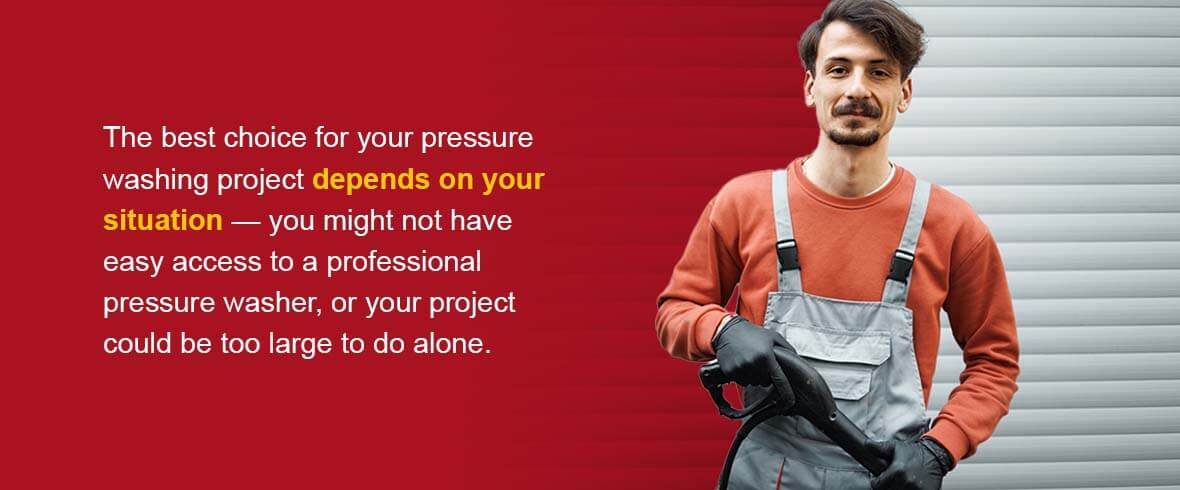
Key Factors to Consider
When deciding between renting a pressure washer or hiring a pro, consider these factors:
1. Cost
Cost is often the deciding factor. Professionals charge for labor, equipment, and expertise, making the upfront price higher. DIY pressure washing with a rental is far more affordable. You only pay for the rental unit and water use. However, doing the job incorrectly could lead to damage, which may increase costs in the long run.
2. Equipment
Professionals bring their own machines and cleaning solutions. If you want to avoid setup or transport, hiring a pro is convenient. DIY pressure washing requires selecting the right model for your project like hot or cold water machines. Rental stores can help you find the right pressure washer.
3. Project Size
Large buildings or areas take significant time and effort. For major jobs, hiring a professional team can be more efficient. For smaller or medium projects, DIY with a rental saves money and gives you control.
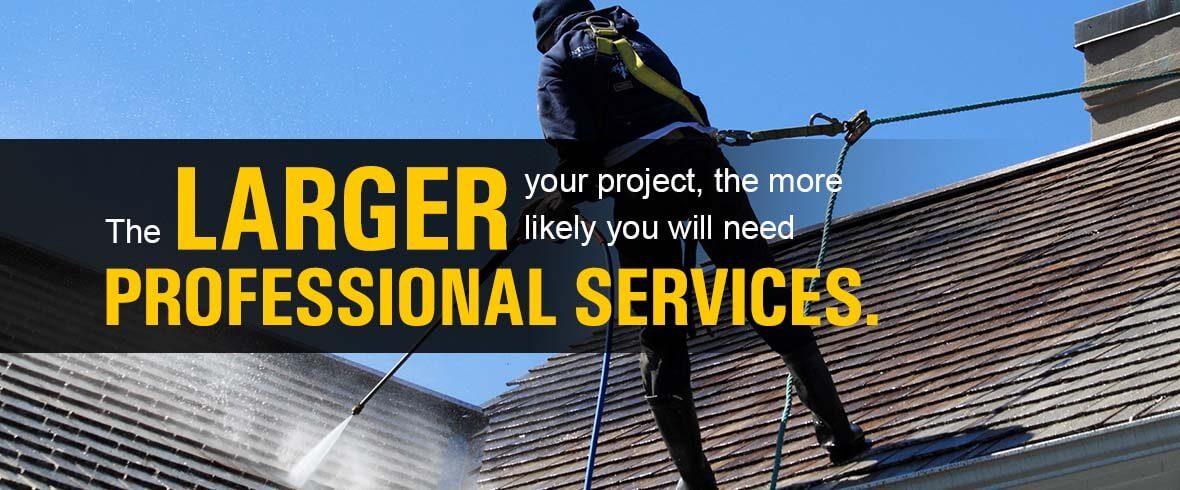
4. Materials and Surfaces
Not every surface can withstand high-pressure washing. Some require cold water or lower pressure to prevent damage. If your project includes sensitive surfaces, consult your rental provider for advice or hire a professional who understands material requirements.
5. Time
Professional services finish quickly because they have teams and experience. DIY may take longer, especially if you’re new to pressure washing, but it allows you to work at your own pace and schedule.
Benefits of DIY Pressure Washer Rental
Handling the job yourself with a rental offers several advantages:
- Flexibility: Work on your schedule and rent the machine for as long as needed.
- Ease of use: Modern pressure washers are simple to operate with a little practice.
- Cost savings: Rentals are far cheaper than hiring professional crews.
- Efficiency: Pressure washers use less water than you think, keeping costs low.
- No storage: Return the rental when finished, avoiding the hassle of owning equipment you rarely use.
Benefits of Hiring a Professional
Professional services also have advantages, especially for larger or more sensitive jobs:
- Insurance: Most pros are insured, protecting you if damage occurs.
- Expertise: Professionals know how to handle various surfaces safely.
- Advanced cleaning: Some pros use special agents or soft washing for deeper cleans.
- Less work: You don’t have to lift a finger—crews complete the job quickly.
- Safety: Avoid risks of injury or accidental property damage by letting trained staff handle it.
What Surfaces Can Be Pressure Washed?
Pressure washers are powerful and work best on tough, durable surfaces. DIY renters should stick to safe applications such as:
- Concrete driveways and sidewalks
- Brick and stone surfaces
- Decks and patios
- Factory and garage floors
- Non-wood siding
- Outdoor furniture
- Vehicles and equipment
- Asphalt and engines
What Surfaces Should You Avoid?
Some surfaces are too delicate for pressure washing. Spraying them may cause damage or costly repairs. Avoid using a pressure washer on:
- Wood siding
- Windows and glass
- Old mortar or loose bricks
- Gutters
- Electrical panels and wiring
- Asphalt shingles
- Lead paint or fragile finishes
If you’re unsure, test a small area in an inconspicuous spot or hire a professional for peace of mind.
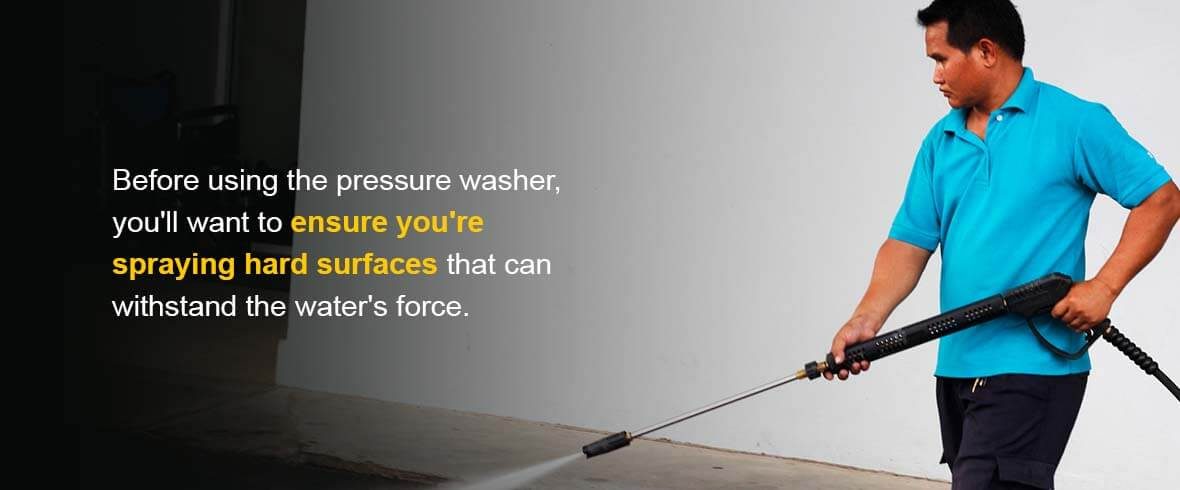
Types of Pressure Washers to Rent
Pressure washers vary by temperature and power. Choose the right type for your project:
- Cold water: Affordable and safe for sensitive surfaces like wood and plastic. Best for light to medium jobs.
- Hot water: Strong cleaning power for grease, oil, and stubborn grime. Not safe for temperature-sensitive surfaces.
- Power models: High-pressure, high-flow units for heavy-duty cleaning. Best for large projects on durable surfaces.
Your rental provider can help match you to the right unit for your project.
Rent Pressure Washers From The Cat® Rental Store
The Cat® Rental Store offers hot and cold pressure washer rentals in multiple sizes to fit your needs. With flexible terms, reliable machines, and dealer support, renting gives you professional results without the high cost of hiring a crew. Explore our pressure washer lineup, request a quick quote or find your nearest dealer today.
FAQs About Pressure Washer Rentals
Is renting a pressure washer cheaper than hiring a pro?
Yes. Rentals cost far less than professional services since you only pay for the machine, not labor.
Can I use a rental on any surface?
Stick to durable surfaces like concrete, brick, and stone. Avoid windows, shingles, and fragile materials.
Do rental stores help choose the right washer?
Yes. The Cat Rental Store team can recommend hot or cold power washers to match your job.
Find The Cat Rental Store Near You